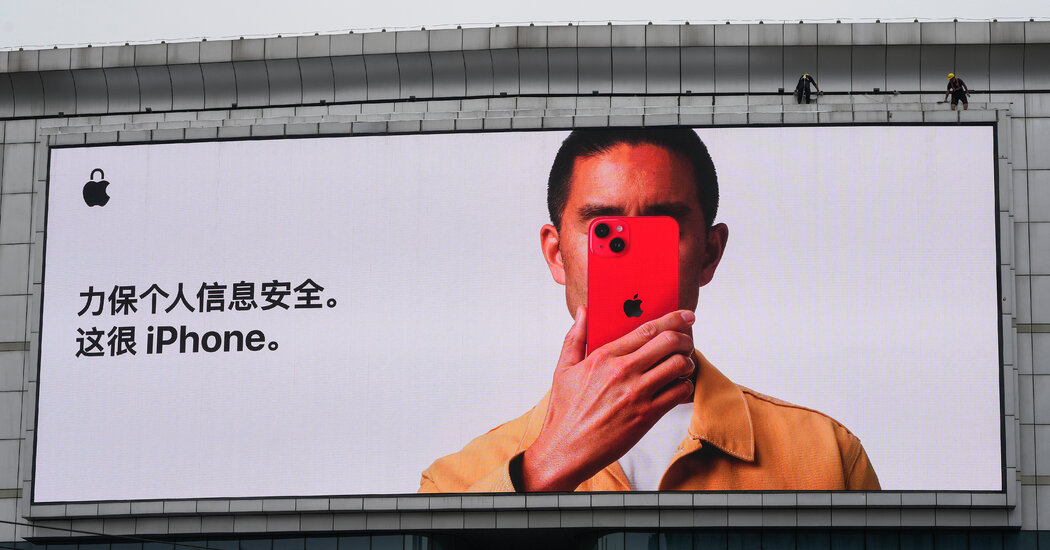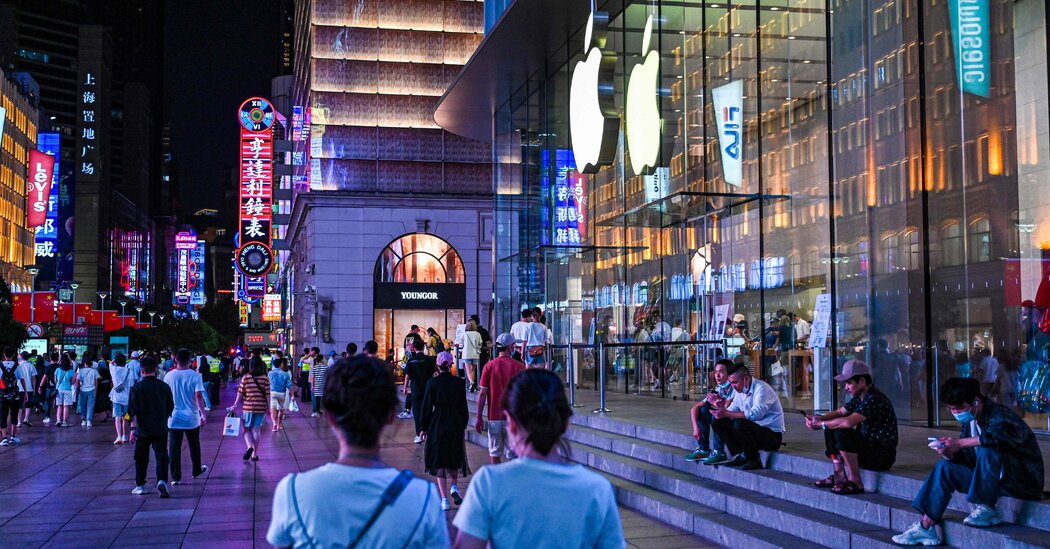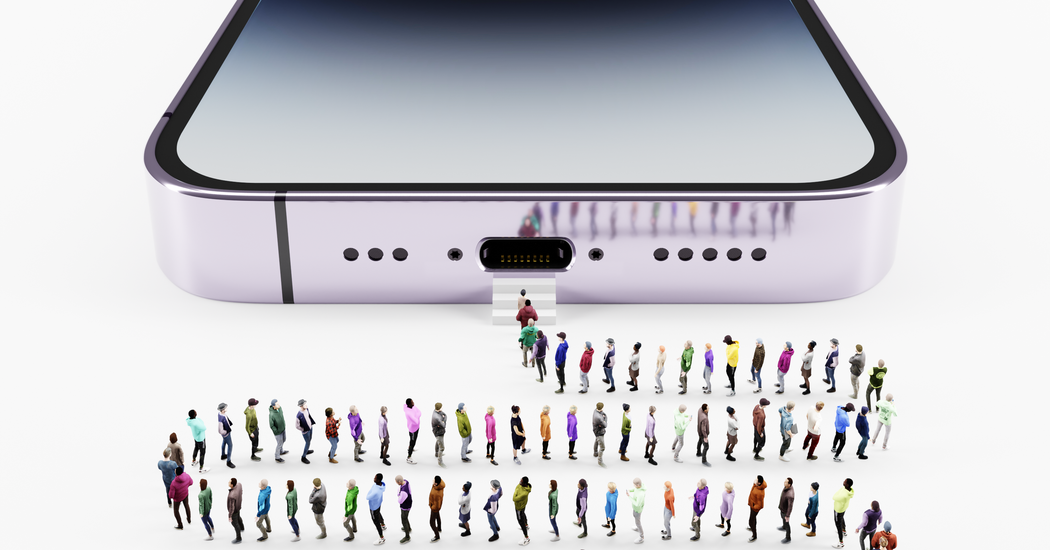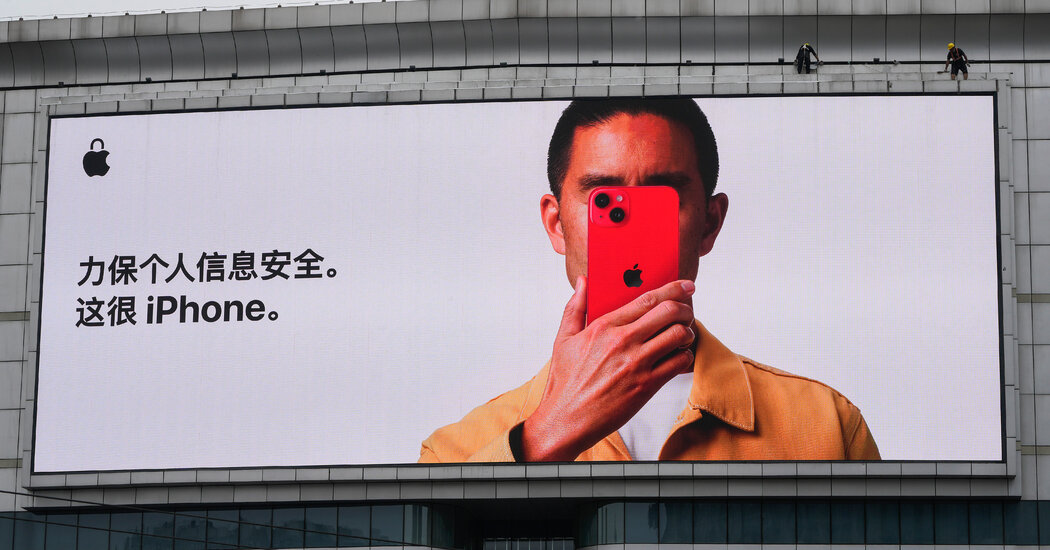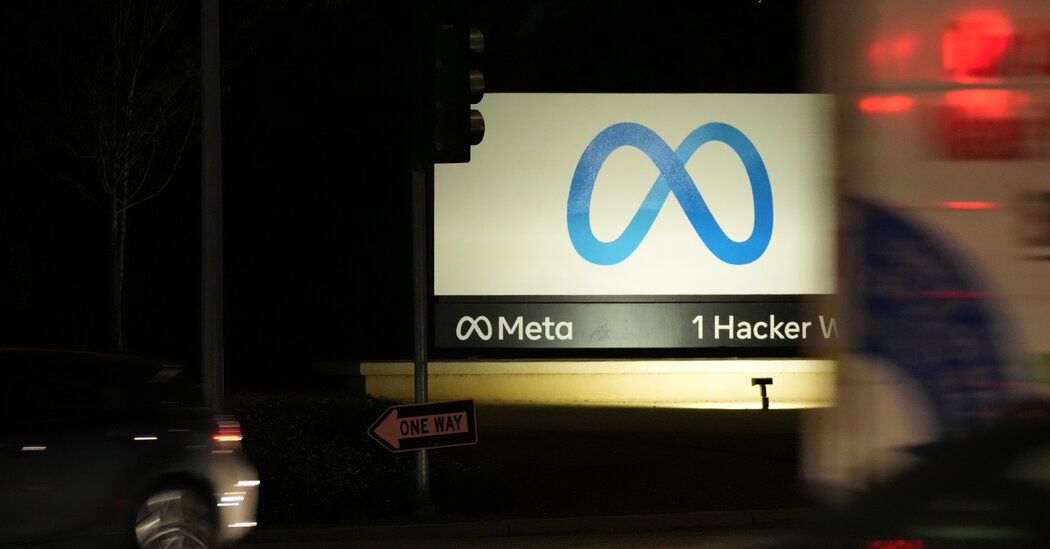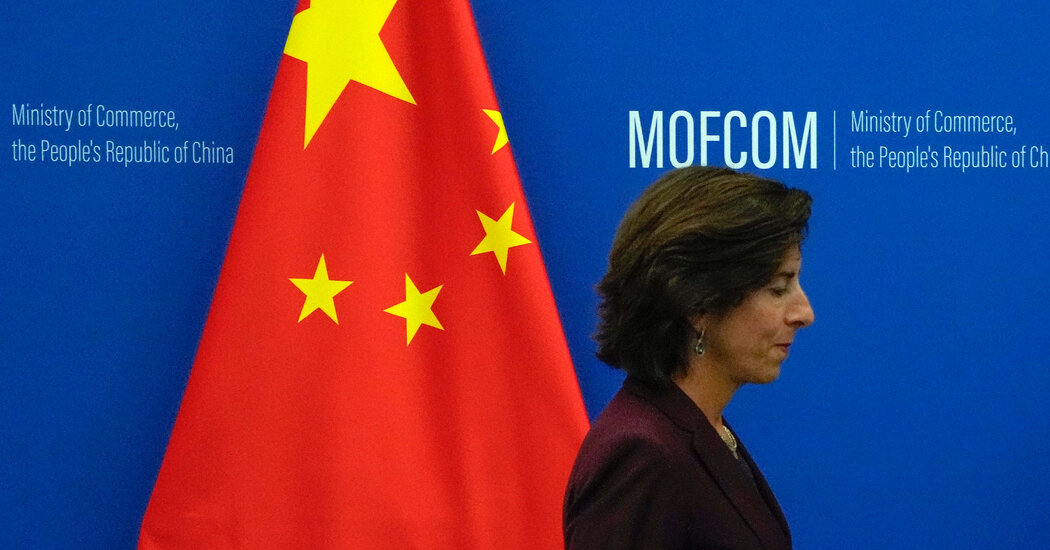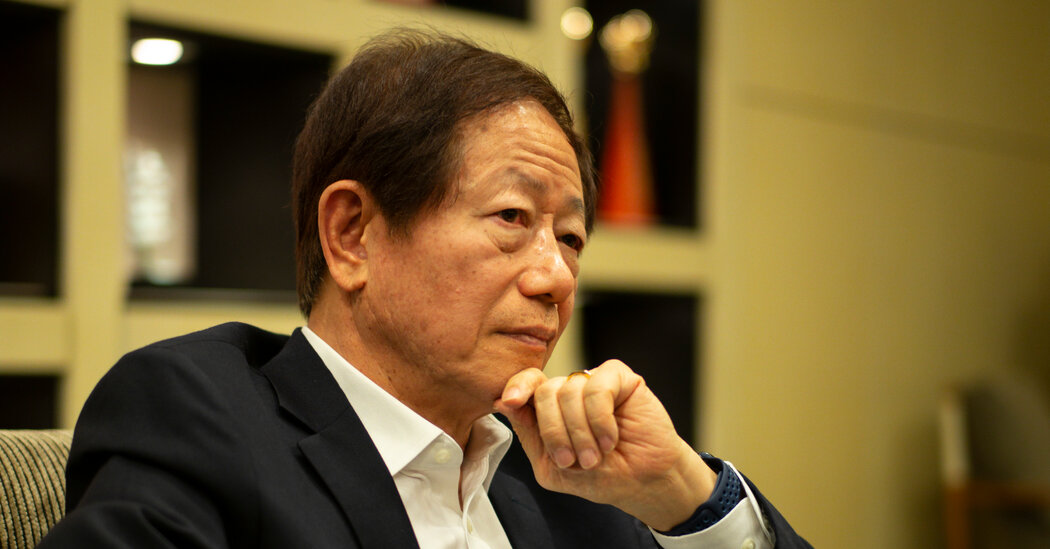China on Wednesday made its first public comments about reports that the government is restricting the use of Apple’s iPhones by some state employees, saying that Beijing had noted what it claimed were security concerns about the device. The comments by Mao Ning, a spokeswoman for the Foreign Ministry, were short on details. She pointed to what she described as “media reports” about security flaws in the iPhone, without elaborating. She also said China had not published “any law, regulation or policy document” banning the purchase or use of foreign…
Tag: Computers and the Internet
Chinese Warnings on iPhones Tap Deep Strain of Security Concerns
China has discouraged the use of foreign-made electronic devices by government officials for a decade. It has told agencies and state-owned companies to replace American computer servers and other devices with domestic ones. And officials frequently show off to Americans their phones made by Huawei, China’s cellphone giant. Now, some employees of government agencies said they have received directives not to use Apple iPhones for work. Internet users in China also have been circulating accounts and screenshots said to contain notices to government employees and state-owned businesses ordering or urging…
As Smartphone Industry Sputters, the iPhone Expands Its Dominance
There’s a general rule about consumer electronics: The older a device becomes, the more competitors appear and prices fall. This was true for televisions, personal computers and portable music players. It was supposed to happen with smartphones. But the iPhone has defied gravity. On Tuesday, Apple will unveil the 17th iteration of its flagship product. Remarkably, at an age in which most consumer devices have lost some of their appeal to users, Apple has increased its share of smartphone sales over less expensive rivals. Over the past five years, the…
Apple’s Stock Falls on Reports of a Chinese Government iPhone Ban
Apple’s China conundrum Shares in Apple, the world’s most valuable public company, suffered their biggest single-day fall in a month on Wednesday following a report that China would extend a ban on iPhones for government workers. Any hint that the company’s business in China is under threat would understandably give investors a fright, and its shares are down another 3 percent in premarket trading Thursday morning. But the ripples will be felt more broadly: If one of the most successful operators in the world’s second-largest economy is at risk, can…
How Montana’s Attorney General Made Banning TikTok a Top Priority
On a recent summer day, Austin Knudsen, Montana’s attorney general, drove his red Buick from Helena, the state’s capital, to Boulder, a tiny town about a half-hour away whose main claim to fame is that it’s home to the state’s highway border patrol. The road was quiet, flanked by the sort of sprawling pastures and expansive landscapes that give Montana its nickname of Big Sky Country. When Mr. Knudsen visits the highway patrol, which is under his purview, he swears by the steak and burgers at the Windsor, a local…
Meta’s ‘Biggest Single Takedown’ Removes Chinese Influence Campaign
On Feb. 27, an article claiming that the United States was behind the bombing of the Nord Stream underwater pipelines in the Baltic Sea was published on the Substack and Blogspot blogging platforms. Within 24 hours, the article — and other versions of it — had been posted to more websites, including Reddit, Medium, Tumblr, Facebook and YouTube. Translations of the article in Greek, German, Russian, Italian and Turkish also began appearing online. The posts were part of a Chinese influence campaign that stands out as the largest such operation…
Commerce Secretary Gina Raimondo Walks a Tightrope in China
What to watch as Raimondo visits China Commerce Secretary Gina Raimondo, one of the Biden administration’s biggest Beijing hawks, kicked off her visit to China on Monday with a call to preserve a “stable economic relationship” between the two economic powers that “share over $700 billion of trade.” With relations between the countries at a critical juncture, Ms. Raimondo is now the fourth senior U.S. official to travel to China in less than three months. Her visit, which will include meetings with business leaders and government officials, including her Chinese…
Biden Orders Ban on U.S. Investments in China’s Sensitive High-Tech Industries
President Biden escalated his confrontation with China on Wednesday by signing an executive order banning American investments in key technology industries that could be used to enhance Beijing’s military capabilities, the latest in a series of moves putting further distance between the world’s two largest economies. The order will prohibit venture capital and private equity firms from pumping money into Chinese efforts to develop semiconductors and other microelectronics, quantum computers and certain artificial intelligence applications. Administration officials stressed that the move was tailored to guard national security, but China is…
How a U.S. Tech Mogul Used Nonprofits to Sow Chinese Propaganda
The protest in London’s bustling Chinatown brought together a variety of activist groups to oppose a rise in anti-Asian hate crimes. So it was peculiar when a street brawl broke out among mostly ethnic Chinese demonstrators. Witnesses said the fight, in November 2021, started when men aligned with the event’s organizers, including a group called No Cold War, attacked activists supporting the democracy movement in Hong Kong. On the surface, No Cold War is a loose collective run mostly by American and British activists who say the West’s rhetoric against…
TSMC Chairman Mark Liu Says Company Will Keep Its Roots in Taiwan
Taiwan Semiconductor Manufacturing Company, which is manufacturing the world’s most advanced microchips, conducts business on the island of Taiwan, dead center in one of the most geopolitically volatile places on the planet. That makes people in Washington very nervous. TSMC dominates the semiconductor industry; it’s a company that the United States can’t do without, 80 miles off the coast of China. The U.S. government has appropriated tens of billions of dollars to strengthen America’s own semiconductor sector and help fund TSMC’s nascent operations in the United States, far from China,…
